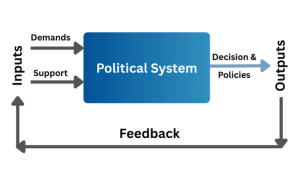The security dilemma in international relations refers to a situation where actions taken by one state to increase its security—such as building up military forces or forming alliances—are perceived as threatening by other states. In response, those other states may also strengthen their own security, which in turn makes the first state feel less secure.
This creates a cycle of mistrust and arms buildup, even if none of the states involved actually desire conflict. The dilemma arises because states cannot be sure of others’ intentions, especially in an anarchic international system where there is no central authority to guarantee safety. It shows how efforts to ensure peace and security can ironically lead to tension, rivalry, or even war.
Security dilemma is one of the core concept of realism, which is based on the Westphalian world order. The concept of security dilemma has been developed by following scholars.
- John Herz has used the Hobbesian theory of state of nature to develop security dilemma, a vicious cycle of insecurity which makes power politics a permanent feature.
- Robert Jervis has developed ‘offence defence theory’ to explain severity of security dilemma.
- Social constructivists believe that security dilemma is because anarchy is interpreted in a specific way. They suggest that communications can address security dilemma.
- George Sorenson has given the concept of insecurity dilemma. Insecurity dilemma suggests that in 21st century, nations suffer from internal security threats. Reasons – rise of ethnic movements, non-state actors, failed states, civil wars.
- Prof. Amitabh Acharya also believe that security dilemma may not be a relevant concept for third world states.





